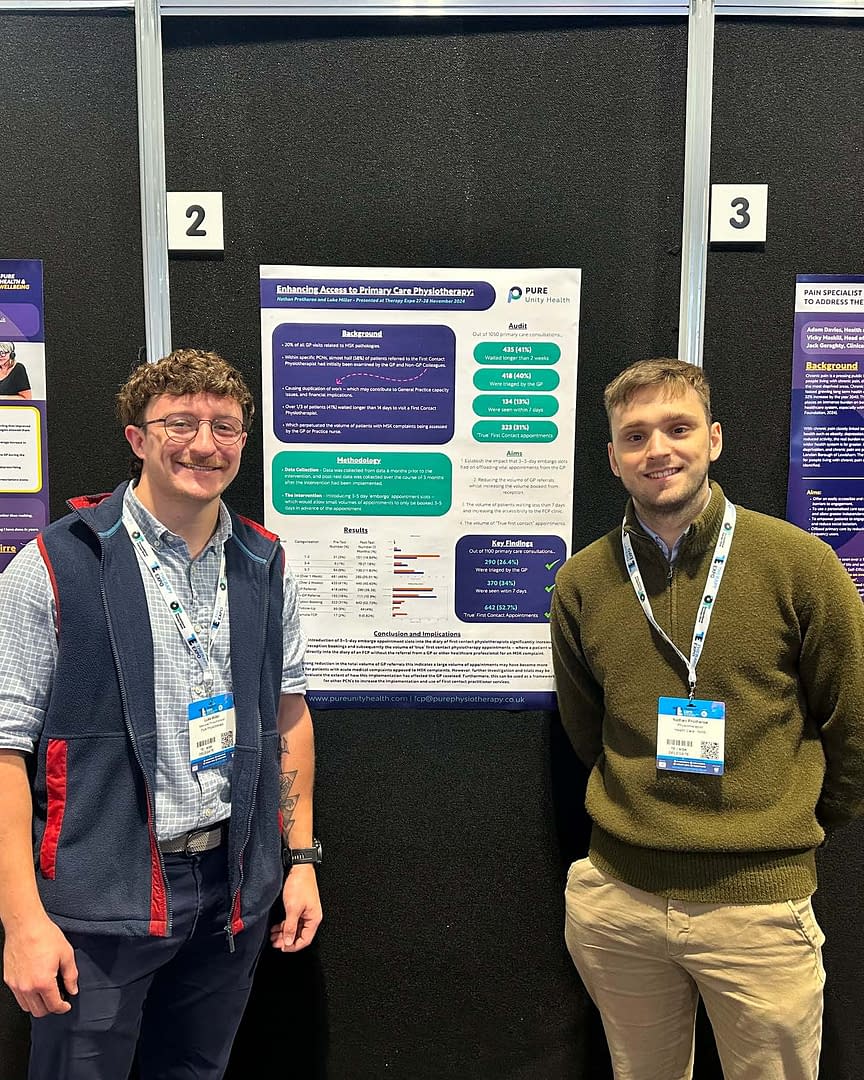Presented at Therapy Expo 27-28 November 2024.
Background
- 20% of all GP visits related to MSK pathologies.
- Within specific PCNs, almost half (58%) of patients referred to the First Contact Physiotherapist had initially been examined by the GP and Non-GP Colleagues.
- Causing duplication of work – which may contribute to General Practice capacity Issues, and financial implications.
- Over 1/3 of patients (41%) waited longer than 14 days to visit a First Contact Physiotherapist.
- Which perpetuated the volume of patients with MSK complaints being assessed by the GP or Practice nurse.
Audit
Out of 1050 primary care consultations…
- 435 (41%) waited longer than 2 weeks
- 418 (40%) were triaged by the GP
- 134 (13%) were seen within 7 days
- 323 (31%) ‘True’ First Contact appointments
Methodology
- Data Collection – Data was collected from data 6 months prior to the intervention, and post-test data was collected over the course of 3 months after the intervention had been implemented.
- The Intervention – Introducing 3-5 day ‘embargo’ appointment slots – which would allow small volumes of appointments to only be booked 3-5 days in advance of the appointment.
Aims
- Establish the impact that 3–5-day embargo slots had on offloading vital appointments from the GP.
- Reducing the volume of GP referrals whilst increasing the volume booked from reception.
- The volume of patients waiting less than 7 days and increasing the accessibility to the FCP clinic.
- The volume of “True first contact” appointments.
Results


Key Findings
Out of 1100 primary care consultations…
- 290 (26.4%) were triaged by the GP
- 370 (34%) were seen within 7 days
- 642 (52.7%) ‘True’ First Contact Appointments
Conclusion and Implications
Following the introduction of 3–5-day embargo appointment slots into the diary of first contact physiotherapists significantly increased the volume of reception bookings and subsequently the volume of ‘true’ first contact physiotherapy appointments – where a patient was booked directly into the diary of an FCP without the referral from a GP or other healthcare professional for an MSK complaint.
With a strong reduction in the total volume of GP referrals this indicates a large volume of appointments may have become more accessible for patients with acute medical complaints opposed to MSK complaints. However, further investigation and trials may be beneficial to evaluate the extent of how this implementation has affected the GP caseload. Furthermore, this can be used as a framework for other PCN’s to increase the implementation and use of First contact practitioner services.





